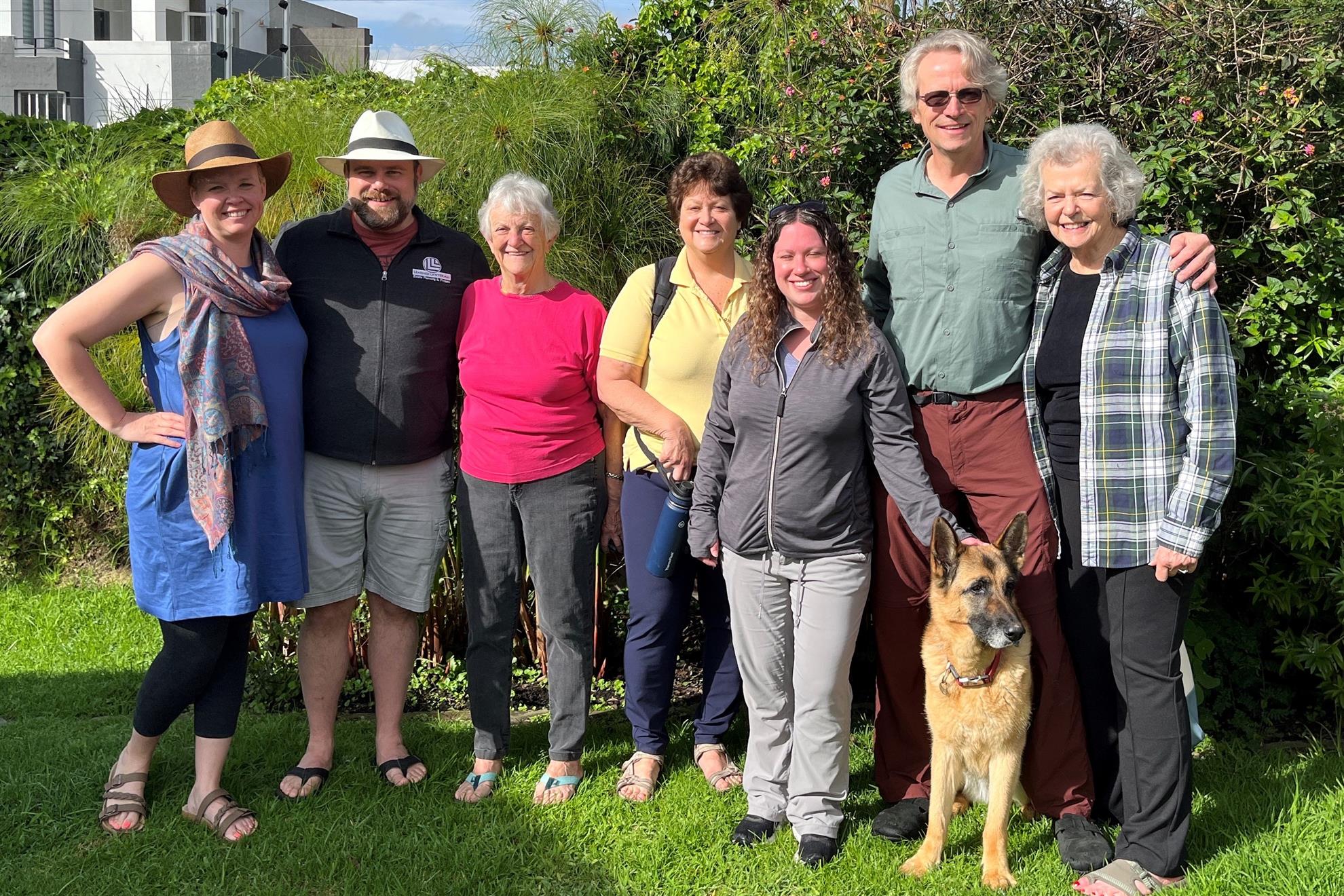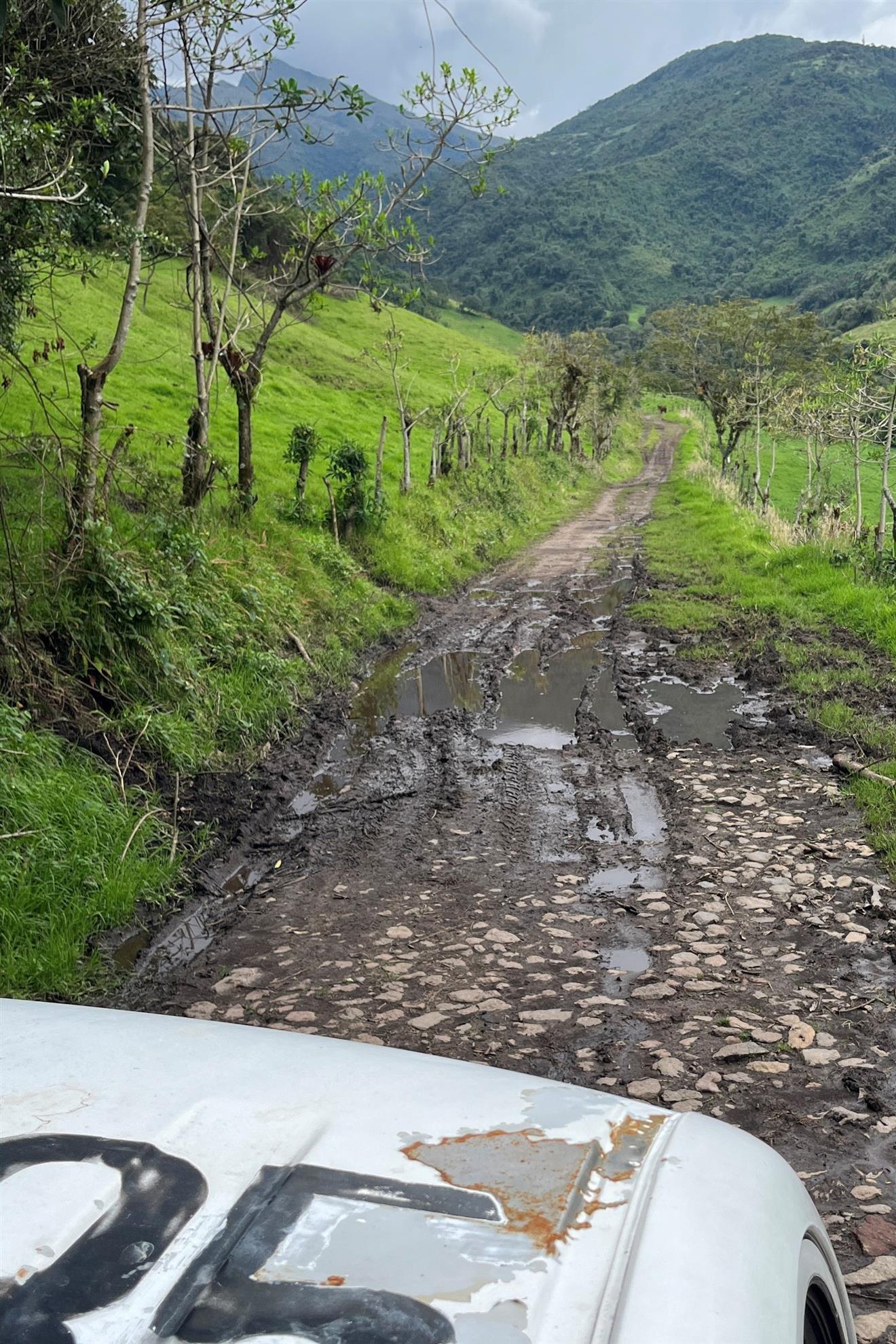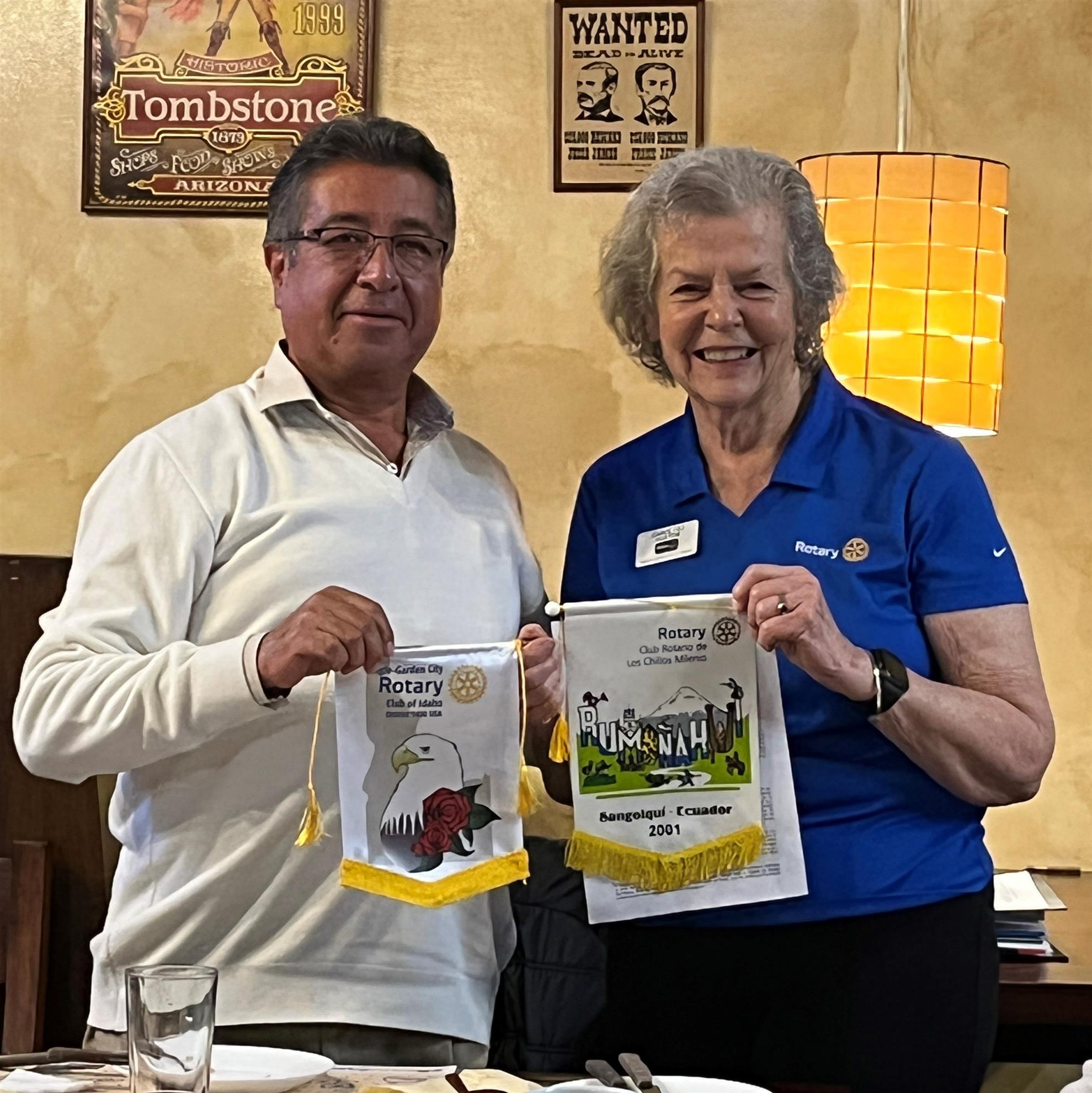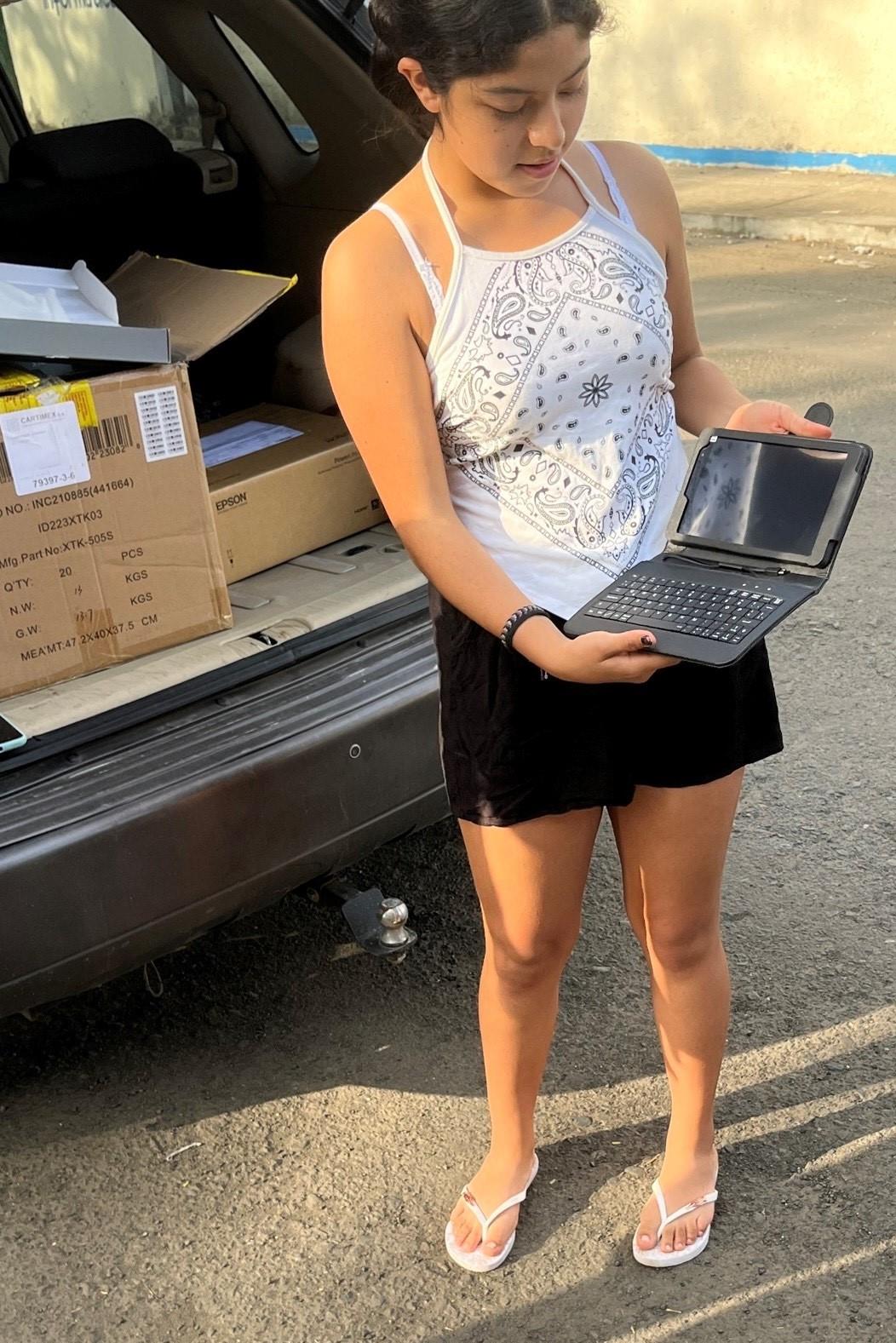 In April, I flew to Ecuador with five other Rotarians from southwest Idaho to see how some grant-funded water projects were coming along and how Rotary might help with other projects. Overall, I think every Rotarian should take such a trip to see what global grants can do and how much they are appreciated by the recipients.
In April, I flew to Ecuador with five other Rotarians from southwest Idaho to see how some grant-funded water projects were coming along and how Rotary might help with other projects. Overall, I think every Rotarian should take such a trip to see what global grants can do and how much they are appreciated by the recipients.Let me share the details of my trip. We flew into Quito at 9,000+ feet and, the next day, met our contact, Marcia, for that area. We immediately headed out to see two of the water projects in the outlying area. Each had a “water board of directors” that was present for the meeting, along with several community members. One group was in the midst of their project but needed more money to complete it, while the second group had completed their project.
 This latter group was so excited about our visit that they had rented a truck to take us up a rocky road to show off their works. The road was steep, windy and mostly one lane. Unfortunately, the recent rain had washed part of it out, and we were unable to see everything they wanted to show us. Marcia was full of praise for this group, especially as they had not only finished their project but the accounting was also accurate to the penny.
This latter group was so excited about our visit that they had rented a truck to take us up a rocky road to show off their works. The road was steep, windy and mostly one lane. Unfortunately, the recent rain had washed part of it out, and we were unable to see everything they wanted to show us. Marcia was full of praise for this group, especially as they had not only finished their project but the accounting was also accurate to the penny.As with all the groups we met, they had food for us. Here it was boiled potatoes, fava beans and corn on the cob served with a soft cheese. It was very good — and very filling. We ended the day going to a facility for older people with no families. The caregivers obviously loved their work and their clients and patients. The facility boasted lots of activities, open air, no smells and no crowding.
After this touring, we met up with our host families.
The next day we went to another small community needing help with its water project. The government brings the water to a place above the community, and they want to install piping and meters to deliver and track the water to each home. Again, community representation at the meeting was good. Another interesting road; another group of people willing to work hard to achieve their goal.
 For lunch, we were taken out to a beautiful building, owned by a local Rotarian, that is used for weddings and banquets. We had time for a quick tour to a cathedral in Sangolqui, a suburb of Quito and then an ice cream cone before getting ready to go to a dinner meeting with the sponsoring Club Rotario de Los Chillos Milenio of Sangolqui.
For lunch, we were taken out to a beautiful building, owned by a local Rotarian, that is used for weddings and banquets. We had time for a quick tour to a cathedral in Sangolqui, a suburb of Quito and then an ice cream cone before getting ready to go to a dinner meeting with the sponsoring Club Rotario de Los Chillos Milenio of Sangolqui.Fairly early the next morning, the six of us were driven to Bahia de Caraquez at sea level and met our contact Bill. Over the next couple of days, we saw a number of projects that the Rotary Club there wants to tackle:
- A recycling project that had been started years ago and was almost up and running when the new mayor elected to office showed no interest, so it was shut down.
- Another recycling area that needs a compression machine to shrink plastic down to 1 cubic foot (instead of 4 ft3).
- A processing plant that, for now, is only for shrimp, the primary industry, although some Rotarians would like to expand the plant for other local seafood.
Then we went on a boat ride with Pirate Jack and traveled part of the Rio Chone. We checked out the Children’s Paul Harris Park (or Parque Infantil Rotario Paul Harris).
 The next day we were off to another water project up a dirt road and across streams. Afterwards, we met with the local water board and again were fed. This time, the meal was very extensive, with dessert and coffee. Our next tour was a neglected place that is being opened up for a preschool and primary school. Outside we met a young Interact member who was just opening a box containing 15 Xtratech tablets and an Epson projector from an Interact club in Washington state.
The next day we were off to another water project up a dirt road and across streams. Afterwards, we met with the local water board and again were fed. This time, the meal was very extensive, with dessert and coffee. Our next tour was a neglected place that is being opened up for a preschool and primary school. Outside we met a young Interact member who was just opening a box containing 15 Xtratech tablets and an Epson projector from an Interact club in Washington state.We bid farewell the next morning after breakfast at our favorite café and were on our way back to Quito. I stayed another day, and my host and I went shopping.
As I said above, every Rotarian should see what our grants can do and how much of a difference they make. Besides the benefits of our projects to communities in Ecuador, this trip was life-changing for me in many ways, including making new friends. One became my roommate for our district conference, and the other, our contact in Bahia, I’m visiting with now at the Rotary International conference in Houston.
To see more photographs of my trip, look at the photo album.